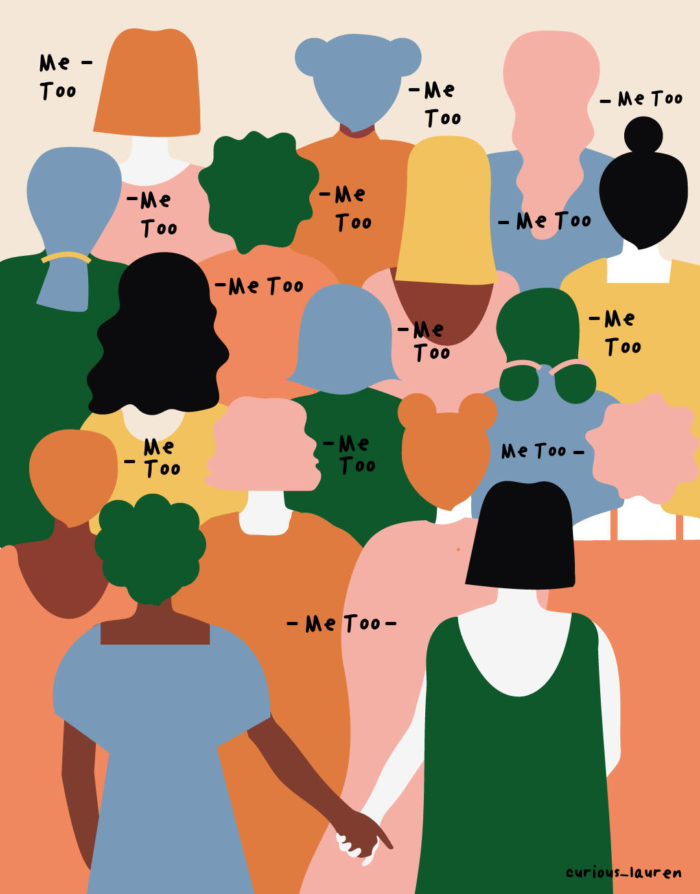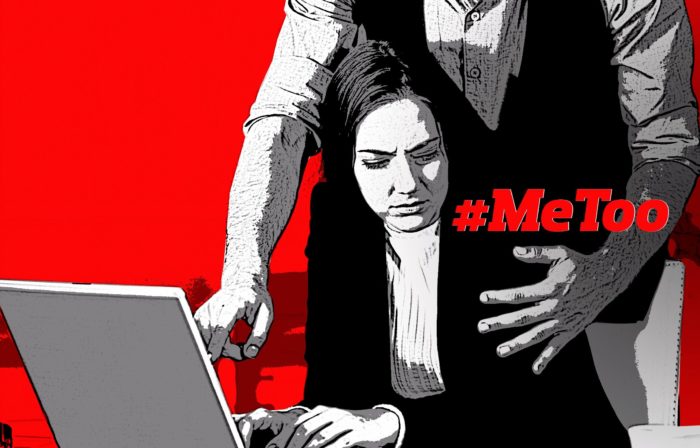By Shumaya Islam
James Franco, a Golden Globe winner for best actor, was recently digitally erased from Vanity Fair’s annual Hollywood cover after his sexual harassment allegations. After deeply thinking about the recent issues concerning sexual harassment accusations among women, ultimately popularizing the #MeToo campaign throughout media, I believe that there are simply too many other factors that revolve around this widespread issue.
“Would you still buy Microsoft if Bill Gates, an American businessman and philanthropist, was accused of sexual harassment?”
When I was asked this question, somehow I felt angry. It is normal for me to speak on current events during the college-prep program I participate in every Saturday, and I was not surprised that we were discussing another sensitive subject. To be fair, I was thankful that this question had been brought up because without it, I would not have been able to process my positions. “We made a decision not to include James Franco on the Hollywood cover, once we learned of the misconduct allegations against him,”a Vanity Fair spokesperson stated. But what difference does this really make?
The #MeToo-focused Hollywood Issue’s cover featured Oprah Winfrey, Nicole Kidman, Reese Witherspoon, Tom Hanks, Michael B. Jordan, Zendaya,, Jessica Chastain, Claire Foy, Michael Shannon, Harrison Ford, Gal Gadot, Graydon Carter, and Robert De Niro. Why should something as horrific as sexual harrassment be a person’s representation in the media only when it happens among celebrities? Despite James Franco being accused of such acts, I strongly see his removal as part of a marketing strategy, and the magazine’s ultimate intention to please the public eye.
Now back to Bill Gates, why was the hypothetical question targeted to someone as famous as Bill Gates? Suddenly, I saw the #MeToo hashtag as similar to a celebrity endorsement. Suddenly I dared to think that this had become a representation without a true meaning.
As someone who has experienced gender marginalization, I value female rights and I respect the women who have all come forward. But, it was hard for me to decide on my thoughts, after I somehow realized that this whole campaign only comes to attention from celebrities and the media. What about the everyday young girls and women who are harassed both physically and mentally in the subway, during their mundane jobs, and by their loved ones? To weigh in on such a debated topic, I approached this similarly to how I approach any other problematic situation I’ve had: with science.
Human complexity itself is what makes this even more interesting. “Too many women have joined #MeToo too quickly and unthinkingly,” said Carole Lieberman, a Beverly Hills psychiatrist and author of the relationship books “Bad Boys” and “Bad Girls.” My first reaction to this comment was undoubtedly a disagreement. How can protesting something like sexual harrassment be done “unthinkingly”? But, after reading about so many recent allegations towards some of the biggest names in Hollywood, I became frustrated to think how it took almost a decade for some of these women to finally come forward and share their stories.
When reading about the allegations against Aziz Ansari, there were debates revolving around the well-known actor and comedian and his date, (known as “Grace” since her real name was withheld by the press). “Grace” contends she felt violated and pushed into giving her body to Ansari, while for many others this was just seen as a “bad date night”.
Michael Cunningham, a psychology professor, offers a clear explanation of emotional expectations, and just how they can truly influence our thinking. “It appears that Grace wanted Ansari to treat her as a potential girlfriend, and to court her over multiple dates, rather than being a one night pickup from a party engaging in a mutually acceptable transaction. When he did not rise to her expectations, she converted her understandable disappointment into a false #MeToo.”
Although Grace’s story is ambiguous in many parts, I think it sets a good example to emphasize my beliefs about the abuse of the sudden popularity of the #MeToo campaign. Sexual harassment and misconduct should not be taken lightly.
It is easy to say that familiar companies such the New York Times and magazines such as Vanity Fair were very cautious in responding to this campaign. The New York Times decided to fire a well-known journalist who was accused of sexual misconduct and Vanity Fair went along with erasing Franco from its cover. But would such decisions have happened if the #MeToo campaign was not as heavily promoted to the public?
In order to avoid misconceptions and stay true to fighting against sexual harrassment, I believe that we do not need the names of celebrities to ignite a change. Although we live in a society where the media is a constant influence on the younger generation, we need to find ways to showcase more positive resolutions of something as awful as sexual allegations to the viewers.
We need to teach young girls to feel empowered as they stand to speak up boldly and take the lead. We need to teach boys that having sexual intercourse on the first date is not something to brag about. The solution to this is to find ways to eliminate gender marginalization, and to create an environment in which no gender has an unfair advantage when engaging in everyday norms such as working and dating.
To reveal and clarify my answer to the Bill Gates question, I unfortunately cannot decide. I would not want to buy Microsoft products, because it would be difficult for me to support an individual’s becoming successful while he was doing the complete opposite of spreading positive change, such as engaging in sexual misconduct. However, what about the thousands of innocent engineers, designers, and promoters, who all put in their effort to create the end product?
Sources:
http://people.com/movies/james-franco-was-digitally-erased-from-vanity-fair-cover-after-sexual-harassment-allegations/

